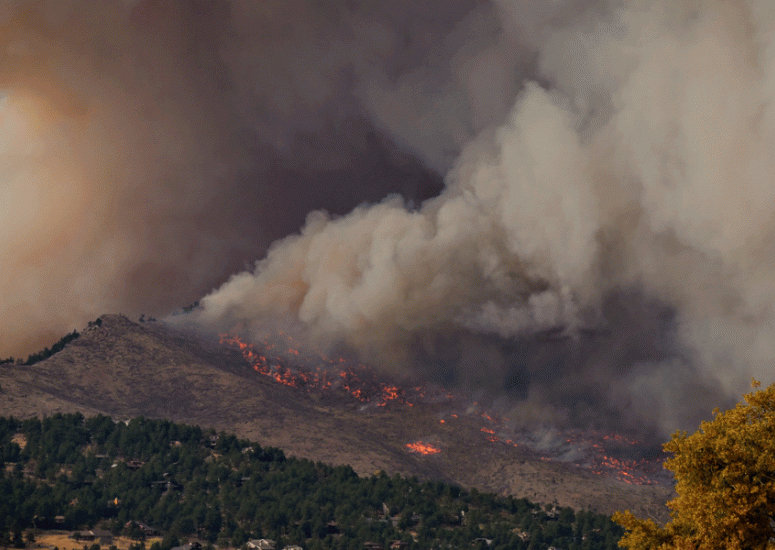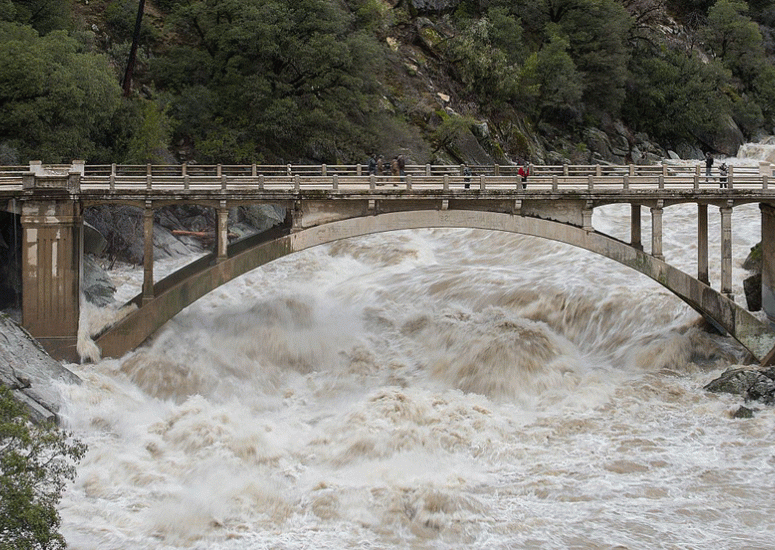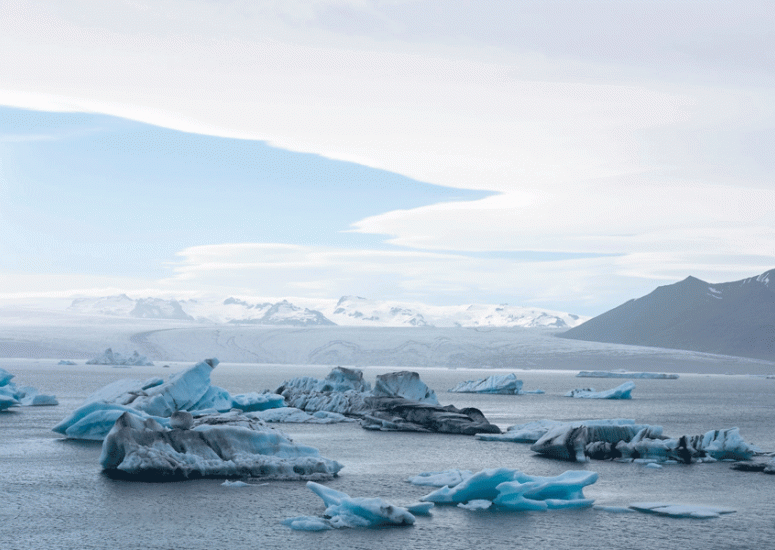-

Scientists brief Pelosi and Neguse on research advances
Pelosi calls visit "transformative" and lauds research efforts.
- Climate,
- Government Relations
-

Wildfire experts provide guidance for new research directions
Fire experts across the nation call for a more strategic and interdisciplinary approach to pursuing wildfire research and protecting vulnerable communities.
- Air Quality,
- Climate,
- Weather
-
Nuclear war would cause global famine
Nuclear war would have profound effects on global food production, resulting in devastating famine.
- Climate
-

California faces heightened risk of megafloods
Climate change is sharply increasing the risk of a catastrophic megaflood in California that could submerge large swaths of the state and displace millions of residents.
- Climate
-

Wildfire smoke can affect Arctic sea ice, new research shows
Emissions from North American wildfires can have impacts on sea ice thousands of miles away, scientists find.
- Climate
